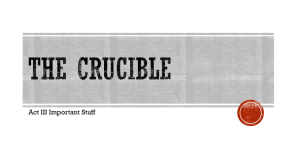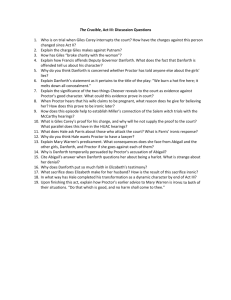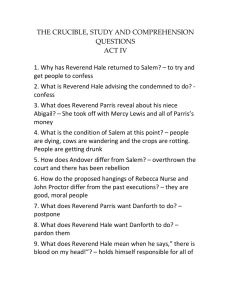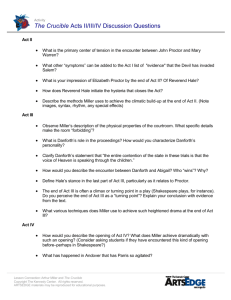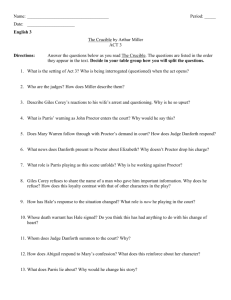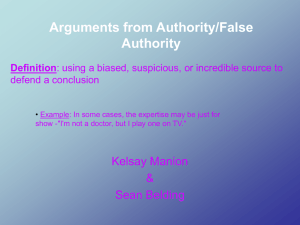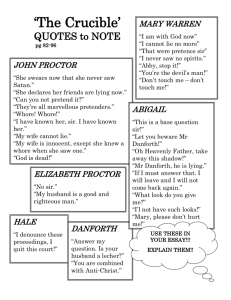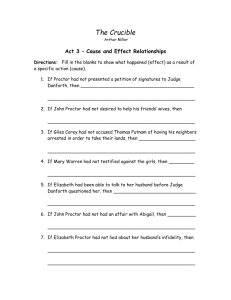Irony in The Crucible answer sheet crucible_irony_answer_sheet
advertisement
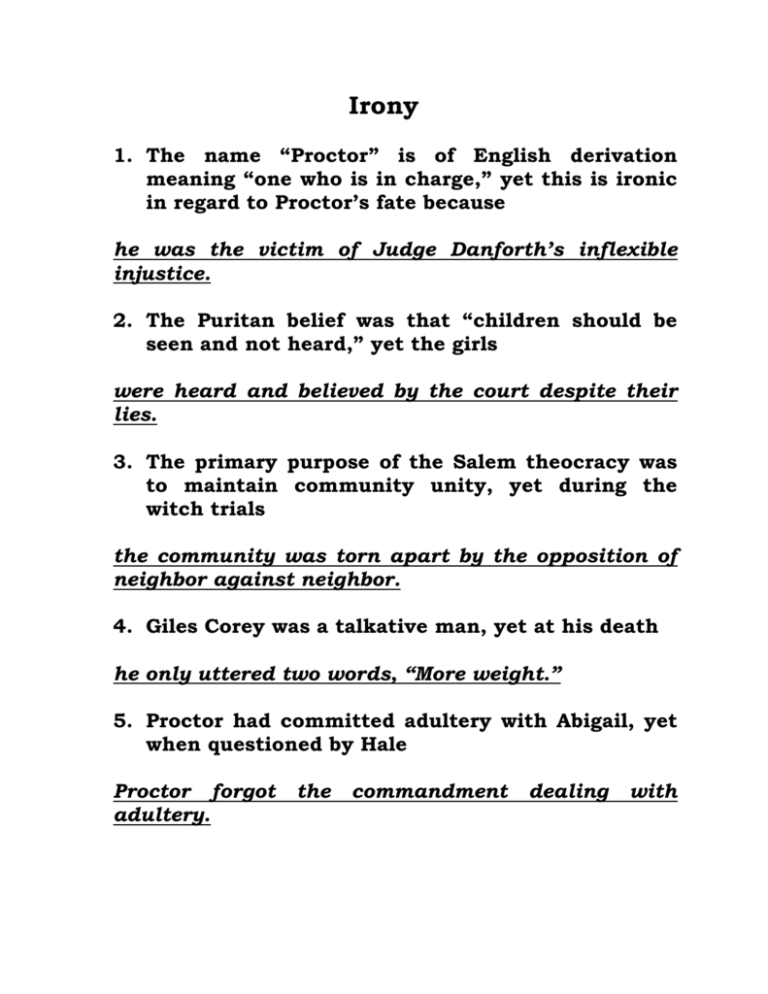
Irony 1. The name “Proctor” is of English derivation meaning “one who is in charge,” yet this is ironic in regard to Proctor’s fate because he was the victim of Judge Danforth’s inflexible injustice. 2. The Puritan belief was that “children should be seen and not heard,” yet the girls were heard and believed by the court despite their lies. 3. The primary purpose of the Salem theocracy was to maintain community unity, yet during the witch trials the community was torn apart by the opposition of neighbor against neighbor. 4. Giles Corey was a talkative man, yet at his death he only uttered two words, “More weight.” 5. Proctor had committed adultery with Abigail, yet when questioned by Hale Proctor forgot adultery. the commandment dealing with 6. Elizabeth is portrayed as a truthful woman, yet when questioned by Judge Danforth she lies in order condemning him. to save 7. Abby and the girls are intentions, yet the court her husband, motivated thus by evil believes them to be totally innocent children. 8. Proctor was displeased when Hale questioned his religious convictions in Act II, yet at the conclusion of Act III calls out an appeal to Hale. 9. In Act IV, Sarah and Tituba are considered insane, yet the world of Salem and the court are really the insane world. 10. Hathorne and Danforth madness in Act IV, yet discuss Parris’ by their actions at the trials, they themselves are mad (insane + angry) 11. Danforth accuses Elizabeth of being heardhearted toward her husband’s impending death, yet when Hale asked him for mercy for the prisoners, he hard-heartedly refused 12. At the play’s end, Danforth explains to Proctor that he cannot accept a false confession, yet by Danforth’s rules non-confession means guilt. Please note, “If that confession is a lie, I will not accept it. I will not deal in lies, Mister.” See the conflict in the logic here.


